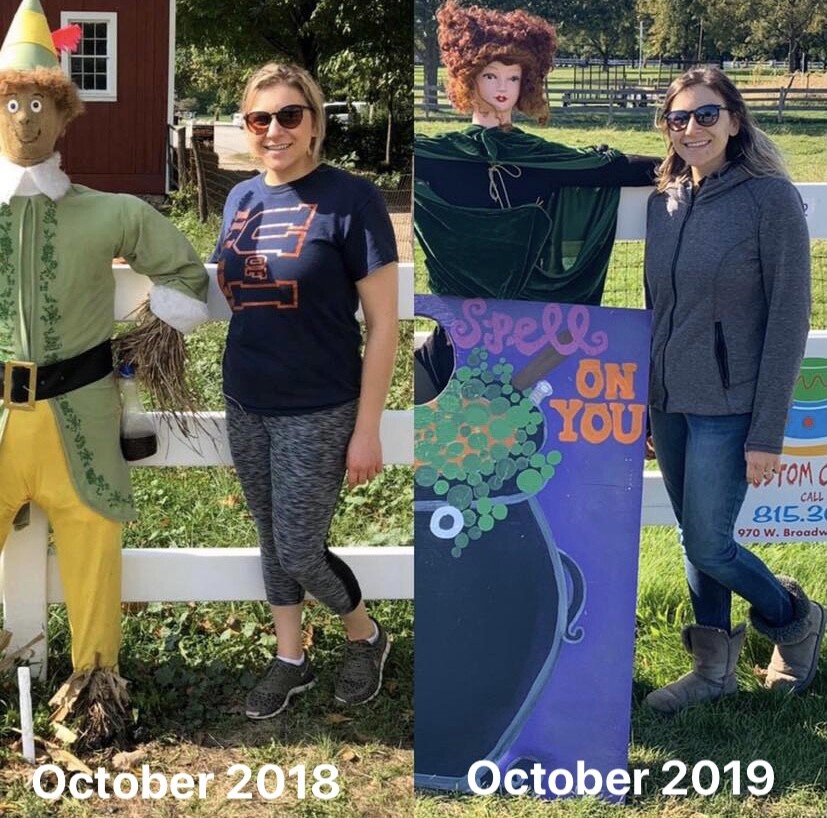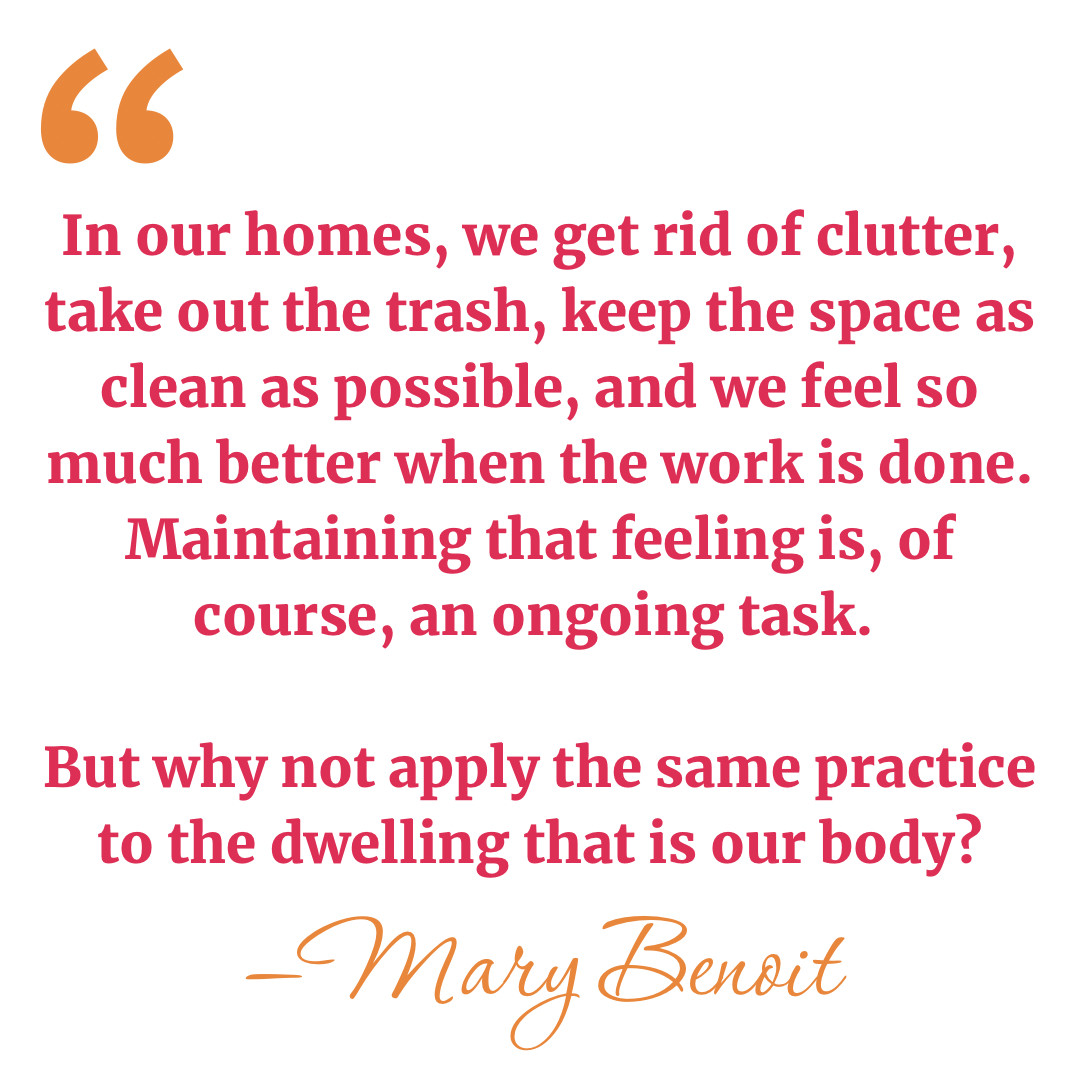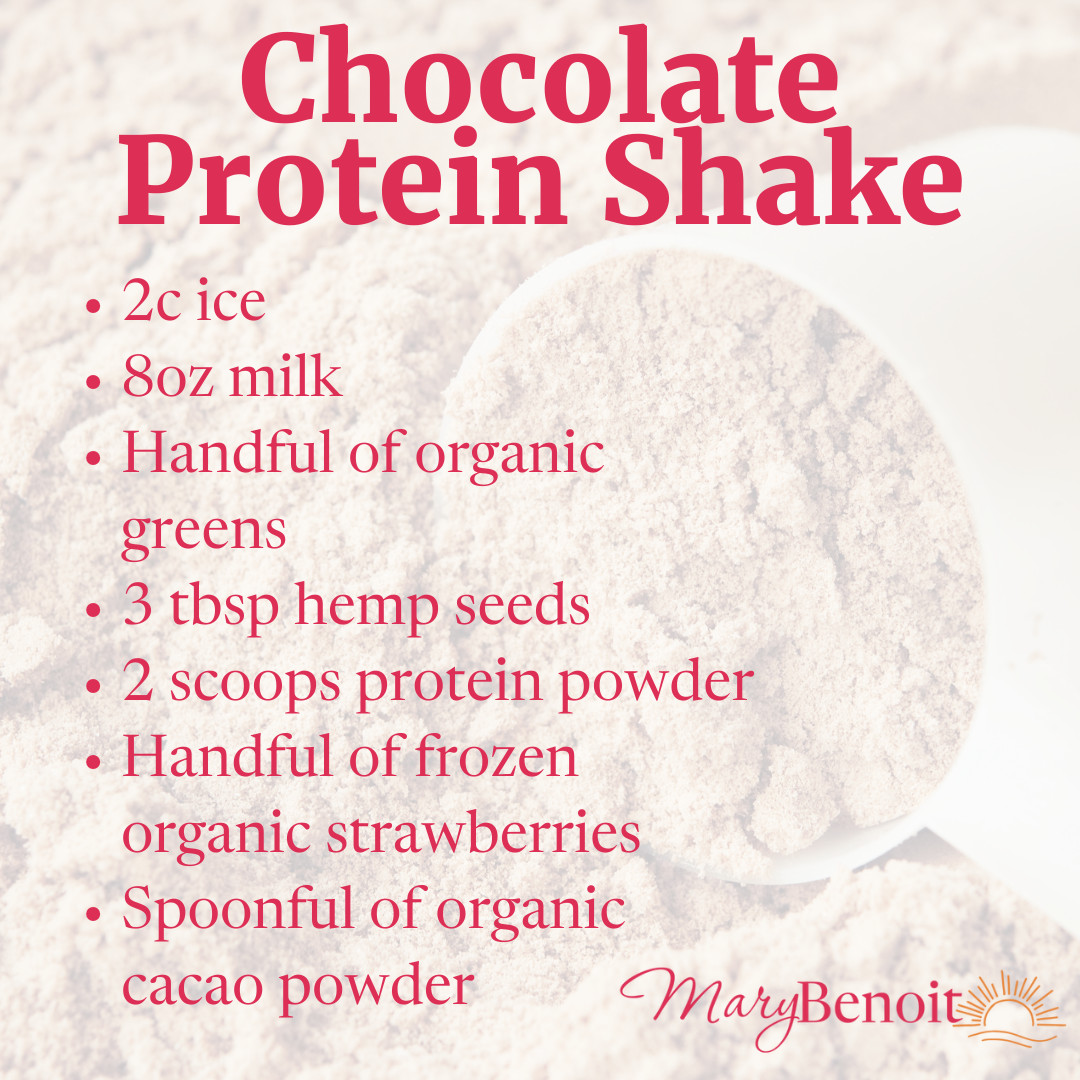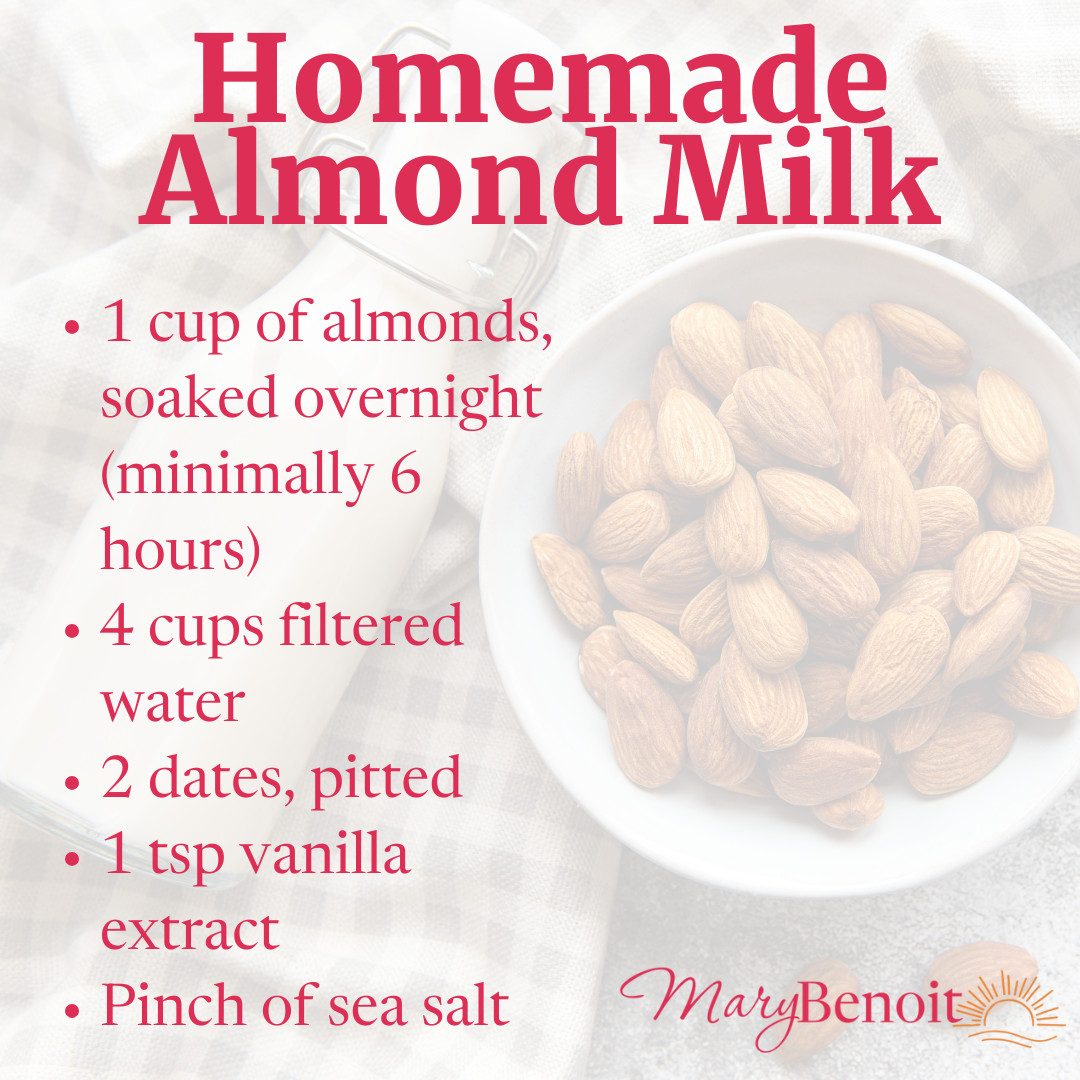Your body is talking to you all the time. Listen to it.
My body has told me for years, “No, Mary, we don’t like gluten.” “No, Mary, dairy isn’t good.” And I resisted so much!! I’ve now been gluten free for about 15 years and I don’t plan on going back. I have experimented with re-introducing dairy into my diet, and almost every time, my body is like, “No, stop!”
Symptoms are your body’s way of communicating with you. It’s dangerous to shut down this method of communication because your body needs to be able to send you important messages! Health is a journey. And while I’m much farther along than I was 10 years ago (or heck! 3 years ago!) I still have recurring symptoms that I’m trying to figure out. And the truth is, I can’t do it on my own.
Skin issues are what brought me to the concept of gut health. Gut health is related to much more than just the skin – it’s related to hormones, anxiety levels, mood and more – but symptoms showing on my skin came out to tell me something is wrong on the inside. And I’m no doctor, but I truly believe MOST symptoms/issues appearing on the skin are caused by some kind of internal storm – likely in the gut.
I’ve gone to a Naturopathic doctor several times in my life to “re-calibrate” and see what’s going on in my body. I’ve found they’re like translators! It’s so interesting all the insightful information they can uncover with unconventional testing using things like electromagnetism, your muscles & your nervous system! You can even see if your local health food store offers any sort of testing. Mine offers an Asyra test - and I'm going Saturday!
The results from these tests can be overwhelming – because you usually get news you don’t want (like your favorite go-to snack is causing problems in your body). But here’s the thing: this is what you’re looking for! This is what you need to be in tune with your body and move forward living your BEST life, in alignment with your body’s needs!
My best advice is NOT to try implementing multiple new foods and lifestyle practices all at once. Once you know what you’re working with, you can start by slowly implementing SUSTAINABLE changes in your life.
LISTEN to your body and HONOR what it’s telling you. Don’t fight it and don’t just treat the symptom. Just find another way. And that’s what us Health Coaches are here for!!
Was this helpful for you? Let me know in the comments below! You can also request to join my new Facebook group for more tips to come – free of charge. <3
I’ve been seeing a lot of people lately ask about how to support their bodies naturally through constipation. If this is you, or someone you love, keep reading!
Someone is considered constipated if they have a bowel movement fewer than 3 times a week.
Some of the first things I’d recommend to someone trying to work through this are:
1. Consider going on a probiotic and/or taking digestive enzymes.
You can ask your doctor about probiotics to see if they're right for you (probiotics are not for everyone) – BUT generally speaking they can be a helpful supplement in supporting gut health. Digestive enzymes help your body break down your food and absorb nutrients. To this day, I keep digestive enzymes in my house (and my purse!) and I take my probiotic every night!
2. Drink more water.
You might be thinking “I drink plenty of water,” but how much is “plenty”? Really you should be drinking HALF your body weight in OUNCES daily. (So, if you weigh 200 pounds, your goal should be to drink 100 oz of water every day.) Water makes up 75% of healthy stool! It’s an important part of getting things moving in the digestive system.
3. Eat plenty of fruits, vegetables & whole grains.
Refined, processed foods & white flour are not your friends here. Fruits, vegetables & whole grains provide your body with high quality dietary fiber, but they also support healthy digestive function in general. Dried plums are a secret weapon in our house, but everyone is different, so pay attention to the foods that are not serving you in this aspect. High fiber diets don't work for everyone, but getting high quality nutrients is always important. NingXia Red is a yummy whole food wolfberry puree that is jam-packed with antioxidants and is extremely supportive to gut health.
4. Try yoga!
Slowing your body down (and relieving stress!) can help get things moving, but there are also some yoga poses in particular that stimulate your digestive system and get things moving. The breathing exercises incorporated in yoga practice are also very calming to your body systems.
5. Exercise.
You don’t need to go join a CrossFit gym, but going for a 30 minute walk on a daily basis (or at least every other day!) can really make a difference. Experiment with different methods of movement and stick with what works for you. Creating a sustainable routine is key for long term success.
6. Incorporate essential oils.
Essential oils like ginger, peppermint, cardamom, anise, fennel & tarragon are extremely supportive to healthy digestive function. I only recommend Young Living oils because I know they’re safe and unadulterated. Some of our favorite essential oils to use for digestive support are blends called KidScents Tummygize (which also comes in a convenient roller bottle) and Digize. Essential oils can be applied directly to the abdomen. If needed, you can dilute the essential oil with a carrier oil like jojoba oil, coconut oil, olive oil, etc.
In more severe cases, you may need to reach out to a doctor for further support, but I encourage you to try holistic approaches before turning to laxatives or medication as this can make your problem worse.
Was this helpful for you? Let me know in the comments below! You can also request to join my new Facebook group for more tips to come – free of charge. <3
I struggled with my weight for years. I’d see the other girls my age walk by in their size 0 (or heck – size 8) jeans silently cursing myself for being a size 12. I ate moderately healthy (you can only be so unhealthy on a gluten free/dairy free diet – but gluten free cookies are still cookies) but for most of my life I felt like I was one of the “bigger” girls, and I didn’t know why.
It wasn’t until YEARS later I discovered the concept of Gut Health and how instrumental it is to overall health – including weight. I was trying to get eczema under control, but along the way I dropped 15 pounds, KEPT it off (check out my before & after at the bottom of this post) & these are some tips I learned along the way:
1. Eat your veggies first
There’s a term us Health Coaches use called “crowding out.” This is the idea that you don't deprive yourself of a food, but you simply fill yourself up on the healthy foods so you eat less of the unhealthy foods. Finish your veggies first. There’s a reason you weren’t allowed to have dessert until you finished your dinner as a kid!
2. Then eat MORE veggies
Your gut LOVES veggies. And the more veggies you eat, the better your body will function. When I started dropping all that weight, I was asked how. My response? “Honestly I’ve just been eating a lot more vegetables lately.” It really can be that easy. Everyone has a different starting point. Acknowledge where you are without judgment and work toward filling half your plate with veggies.
3. Make easy, healthy shifts
Get the brown rice/quinoa or veggie noodles (low glycemic!), opt for the sweet potato fries (also low glycemic!), try homemade banana ice cream instead of the pint at the store (just toss a few bananas in a high-speed blender with a splash of liquid! – two ingredients and no refined sugar!) or have a smoothie instead! Don’t be afraid to experiment with foods you already love and see what you can shift to make them better for you. Also remember: the fewer ingredients the better.
4. Find your trigger foods
For some people this is easy. You know which foods make you feel bloated or just plain gross, so you avoid them. To identify less obvious culprits, keep track of the food you eat and how you feel right after & 3 hours after you eat it. Is that food serving you or should you find an alternative? In more challenging cases, you may have to outsource – like I did. I found a local Naturopathic Doctor who tested me for food intolerances, and that took out all the guesswork. Don’t be afraid to ask for help!
Was this helpful for you? Let me know in the comments below! You can also request to join my new Facebook group for more tips to come – free of charge. <3













